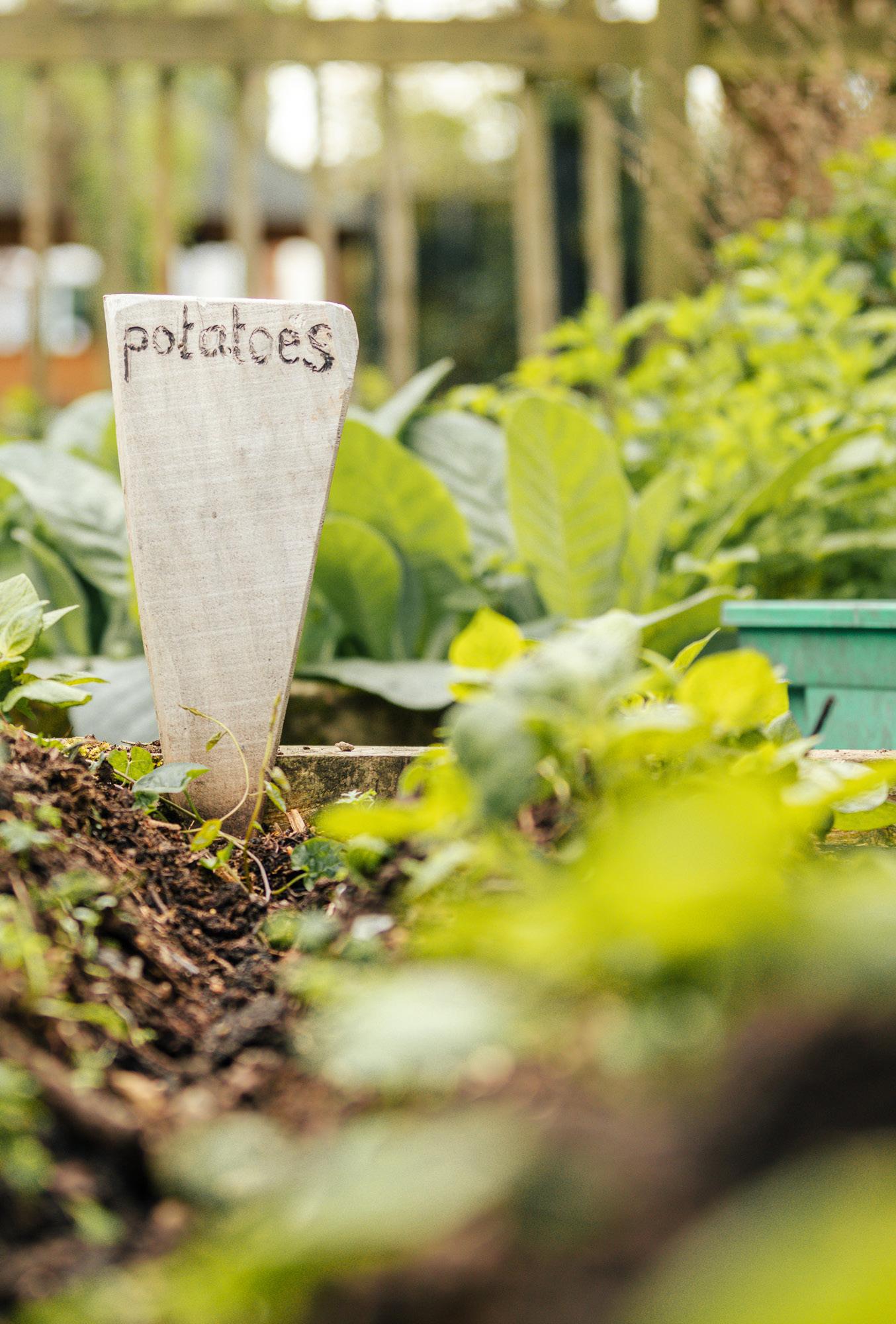
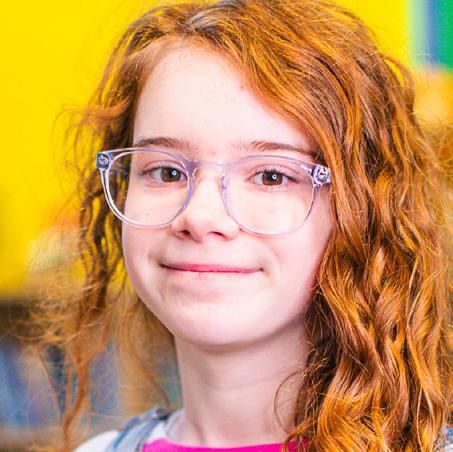



The Junior School follows a one-week timetable with a topic-based curriculum. Subject specific learning will, in the main, be approached through the lens of the topic.
Below you will find a summary of the main subjects covered in E Group (Year 5) and the amount of time dedicated to them each week. The class teacher is the main lead for the subject except for those subjects which are led by specialist teachers, detailed below.
Autumn term: American Road Trip
This exciting topic kicks off the year with a focus on the geographical features of the USA, looking at biomes, climates, and habitats. Within the context of each biome, we study a different Native American tribe and understand how they have adapted to live in their environment. Students also conduct research and take part in discussions about who truly discovered America as well as looking at famous landmarks.
Spring term: Incredible India
From maharajas to mountains, tigers to temples and cricket to cows, there is much to discover about this incredible country. Pupils study India’s geographical features, climate zones and learn key locational knowledge. They study ancient civilizations, focusing on cultural development and historical significance. Art lessons involve researching Indian artists and using sketchbooks to develop ideas inspired by traditional patterns and techniques. As the birthplace of two of the world's most followed religions - Hinduism and Buddhism - cultural beliefs, festivals and places of worship are also covered.
Summer term: Its all Greek to me Children will discover who the Ancient Greeks were, where they lived, and how they have influenced the modern world. They will explore what life was like and learn about contrasting city - states such as Athens and Sparta. They will study key historical figures, Greek gods, myths, and look at the first Olympic Games. Using maps, timelines, and historical evidence, pupils will build key history and geography skills while comparing life in Ancient Greece with life today.
Subjects over each week
This graphic represents a typical week in the Year 5 curriculum. However, we adapt and change daily depending on the needs to our students so these timings can occasionally be flexible.
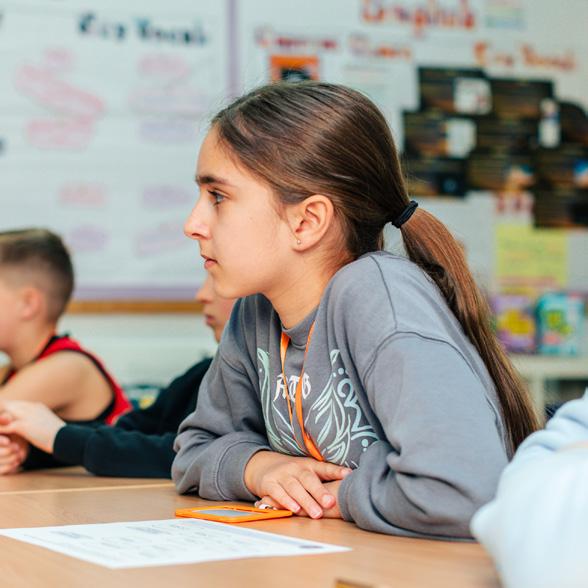
Bryan Anderson & Carly Ougham
4 Sessions
4.5 hours approx.
In English, students engage in a comprehensive study of the English language. The focus includes the development of advanced reading comprehension skills, the acquisition of an extensive vocabulary, and the refinement of writing proficiency. Emphasis is placed on the mastery of grammar and punctuation, instrumental in facilitating effective communication. Our English work is often linked to topic and other areas of the curriculum.
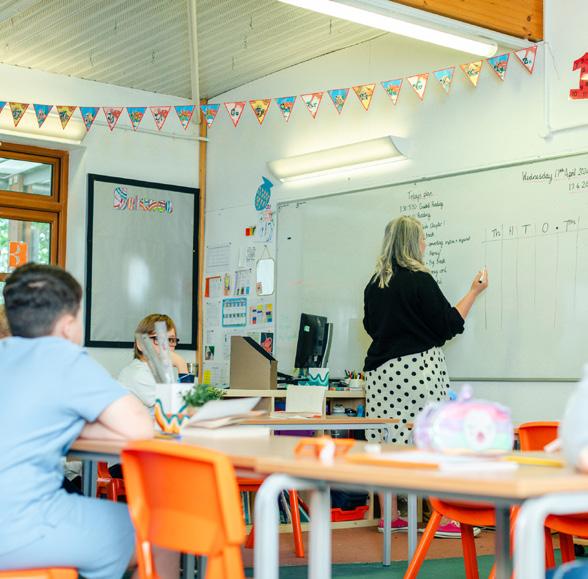
Bryan Anderson & Carly Ougham
4 Sessions
4.5 hours approx.
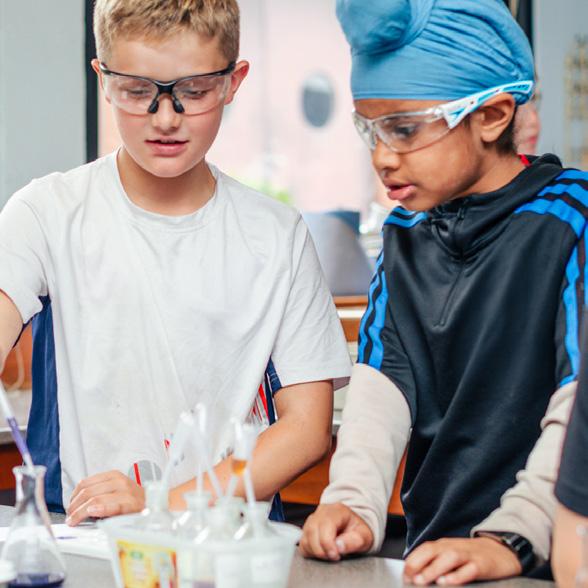
Bryan Anderson & Carly Ougham
1 Extended Session 2 hours approx.
In E Group, the science curriculum introduces fundamental concepts in biology, physics, and chemistry. Through hands-on experiments and observations, children develop a deeper understanding of the natural world. Topics include animals including humans, forces, space, materials, and plants. Critical thinking and enquiry skills are encouraged as students engage with hands-on scientific principles, fostering a curiositydriven approach. overNumberofhours 1week
Using the White Rose Maths scheme, we cover a range of mathematical concepts. Students develop their skills in arithmetic, fractions, decimals, and geometry. Problem-solving becomes multistep, encouraging critical thinking. We introduce algebra, preparing students for more complex mathematical reasoning. Emphasis is placed on securing mathematical concepts and developing a mastery for future mathematical endeavours.
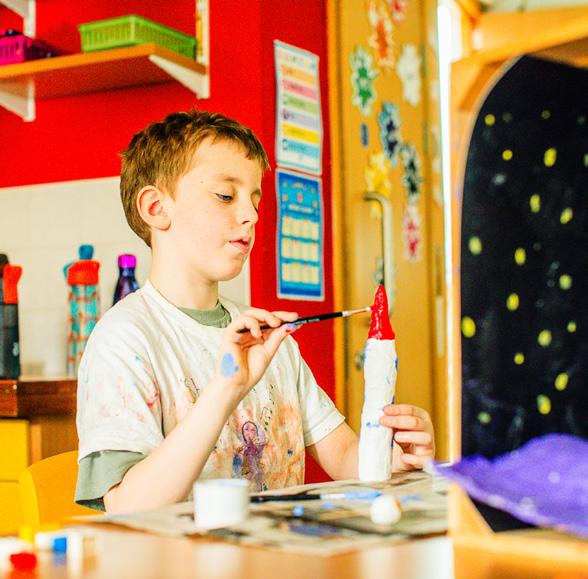
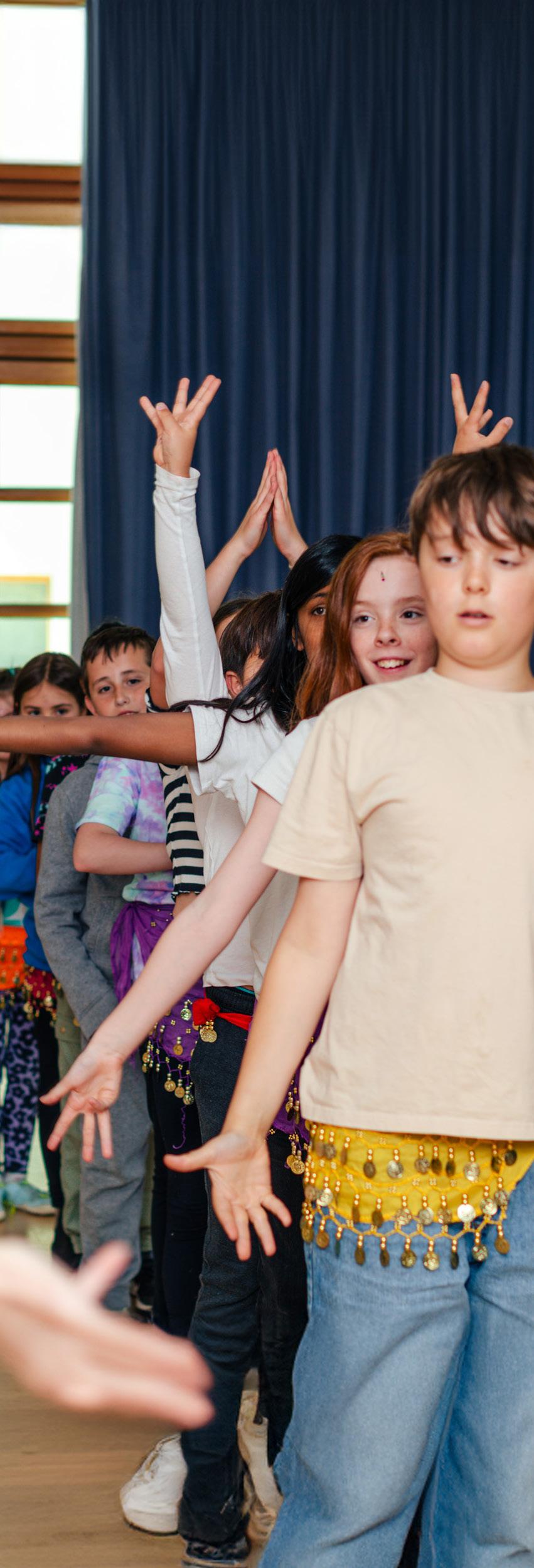
Bryan Anderson & Carly Ougham
1 Session
1 hour approx.
In computing, students in E Group build on their digital literacy and computational thinking. The curriculum introduces concepts such as coding, algorithms, and problem-solving. Through hands-on activities, students engage with various software applications, fostering a practical understanding of computer science. We aim to equip students with the skills to navigate the ever-evolving landscape of computing and digital technologies.
Bryan Anderson & Carly Ougham
1 Extended Session
2 hours approx.
In our study of humanities, we combine history and geography within our overall topic. The class explores different aspects of history through a range of viewpoints and historical sources. Looking at significant global events and their implications give us a sense of the world around us. Geography emphasises map skills, cultural diversity, and the dynamics of human communities.
Bryan Anderson & Carly Ougham
1 Extended Session
2 hours approx.
In E Group, students embark delve into various artistic forms and expressions as part of their creative exploration. The curriculum introduces fundamental concepts in visual arts, encouraging students to experiment with different mediums and techniques. From drawing and painting to sculpture and mixed media, students develop their artistic skills and cultivate a personal artistic style.
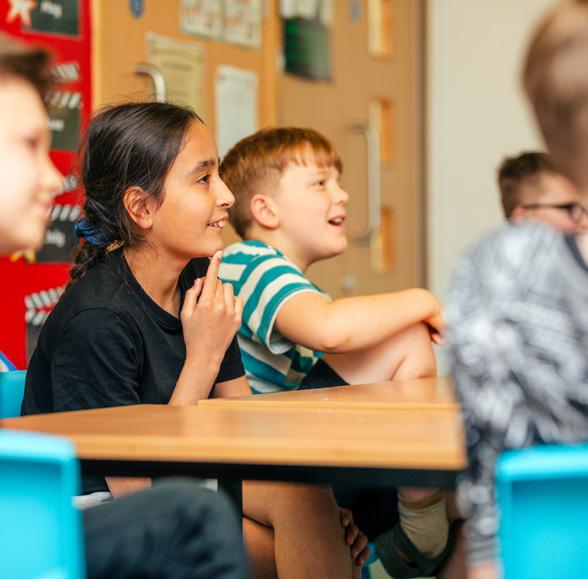
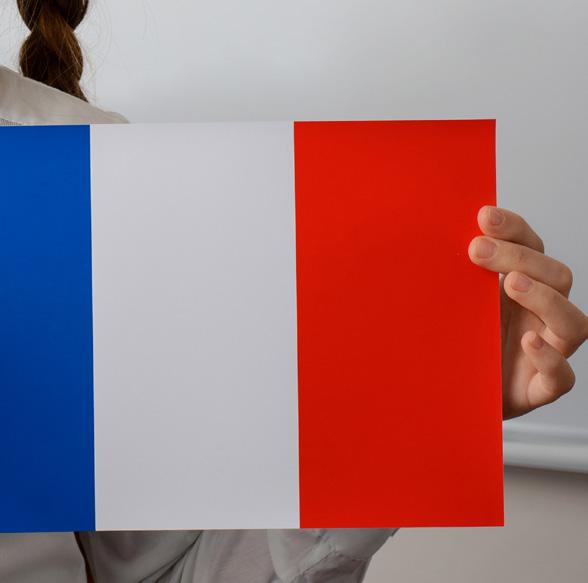
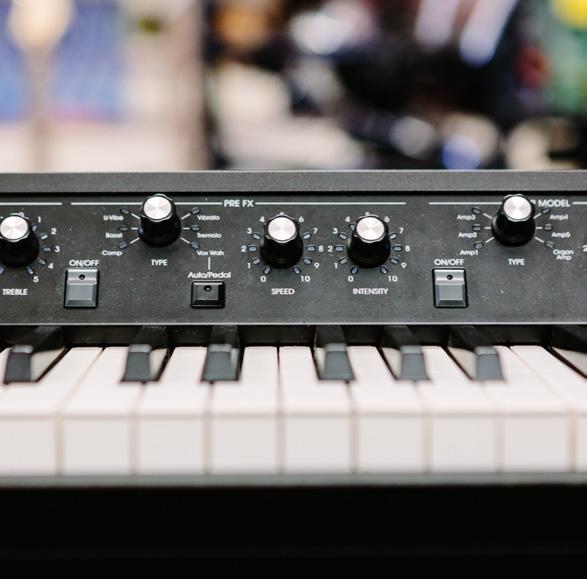
Bryan Anderson & Carly Ougham
1 Session
1 hour approx.
In PSHE (Personal, Social, and Health Education) we address personal wellbeing, interpersonal relationships, and the importance of physical and mental health. This compliments the RSHE (Relationships, Sex, and Health Education) curriculum which includes age-appropriate discussions on friendships, and how our bodies change during puberty. Through open conversations and activities, children develop the skills to make informed decisions, build healthy relationships, and understand the importance of self-care.
Edel Davies
1 Session
1 hour approx.
Through games, songs, mime, dance, and projects students in F Group learn key French vocabulary, linguistic structures, and grammar. During these transitional years towards senior school, more emphasis is placed on student ownership over their learning by encouraging more student led activities. For example, students take full autonomy over classroom routines, set up to consistently revisit and build upon previously learnt language. Through a variety of engaging situational topics, students revise and meet new grammatical concepts such as irregular present tense verb formations, introduction to key verbs in the past tense, a wide range of conjunctions, complex negations, and imperatives. Focus remains on understanding aural input and oral output, however, students will also be encouraged to notice features of written French when reading short texts and begin to produce their own writing in the target language.
Ann-Marie Knight
1 Session
1 hour approx.
Throughout their study of music, students in E Group, as well as studying a range of challenging class songs with opportunity for singing in harmony, there are a lot of group performances (creating a class orchestra using tuned percussion and keyboards) and group composing e.g. journey into space (clusters and attack and decay). Performing from notation is encouraged and improvisation skills are developed much further. There is a wide range of listening and the children learn more about the development and context of musical periods.
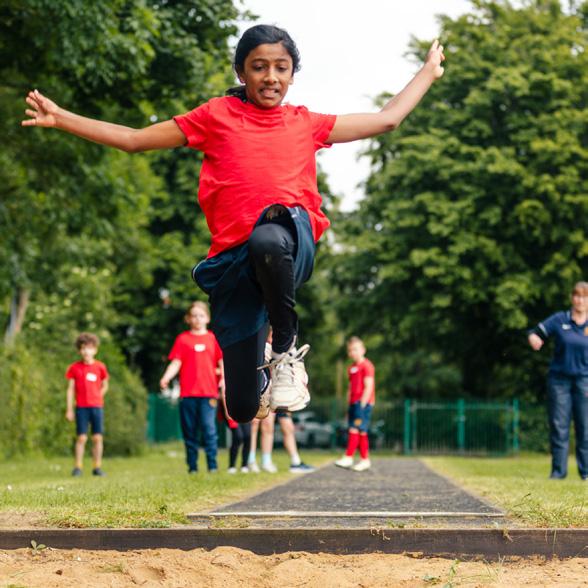
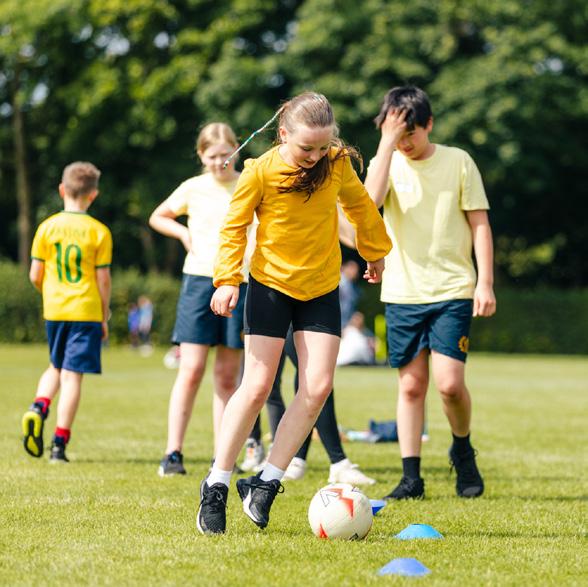
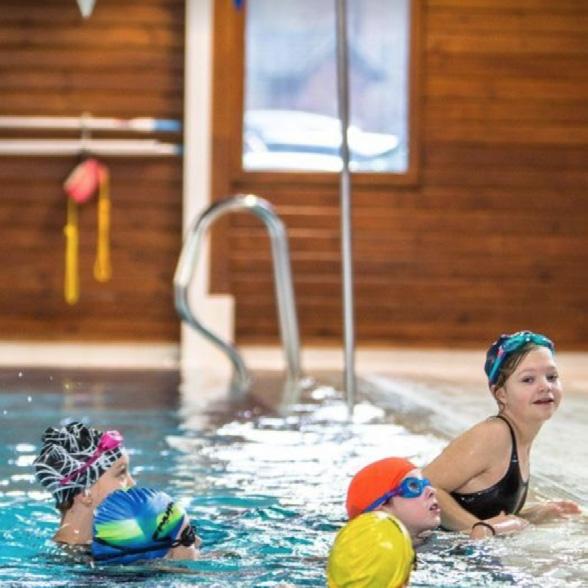
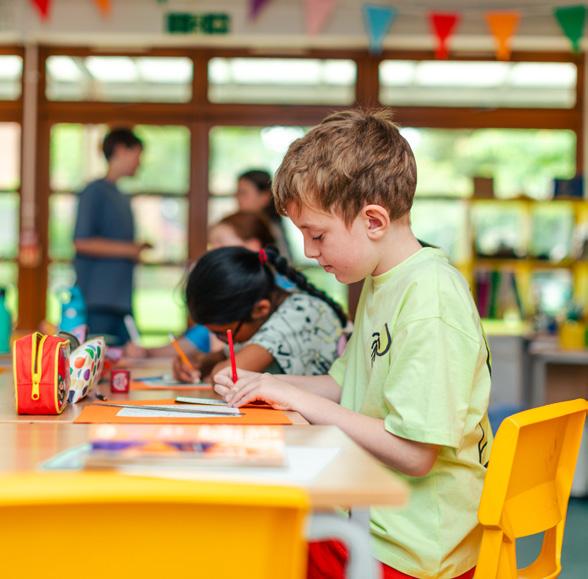
James See 1 Session
1 hour (+ changing time)
Students in E Group participate in the following activities which aid fundamental skill development: fitness, outdoor and adventurous activities, creative dance, gymnastics, tennis, and athletics. These skills, alongside those taught during their games lessons, are supported with after school practices and the opportunity to play competitive fixtures..
Lyn McGregor & Maggie Bilcliffe & James See 1 Session
1 hour (+ changing time)
Students follow a programme of football and netball (autumn term), rugby and hockey (spring term), and cricket and rounders (summer term). Students focus on utilising strategies to outwit opponents in games and improving the skills of sending, receiving, striking, and travelling with a ball in a range of contexts. Throughout games sessions, students also learn to make informed decisions during small-sided games and simplified versions of recognised competitive games, learn to understand the effect of exercise, and develop an attitude of fair play and enjoyment.
Jenny White
Head of Department
45 minutes + changing time
In E Group, students learn to swim 200m with front and back crawl with ease and hone front crawl to a proficient standard. Specialist swim teachers work with students to help them swim 100m in effective breaststroke, effective fly over 25m, swim 10m fully submerged, and complete competent competitive starts, transitions and turns.
Lydia Somerville 1 hour 30 minutes (1/2 termly)
In their Forest School sessions, students in E Group learn about shadows, the position of the sun, and how we can track time using the sun. Students also look at the lifecycles of common plants, seed dispersal and follow tadpole development in the pond. Throughout the year, students develop their use of knots, sticks, and tarps for a wide variety of play activities.
Forest School at St Chris is a child-centred, inspirational process that gives our young learners opportunities to challenge themselves, develop confidence and increase their self-esteem through hands on learning experiences in a natural environment. Sessions are based on a fundamental respect for students and for their capacity to instigate, explore and maintain curiosity in the world around them. Most importantly, our students develop a deep and meaningful connection to the natural world and understand their place in it.
Forest School inspires a deep and meaningful connection to the world, where students challenge themselves, develop confidence by solving real-world issues, and build self-belief and resilience.
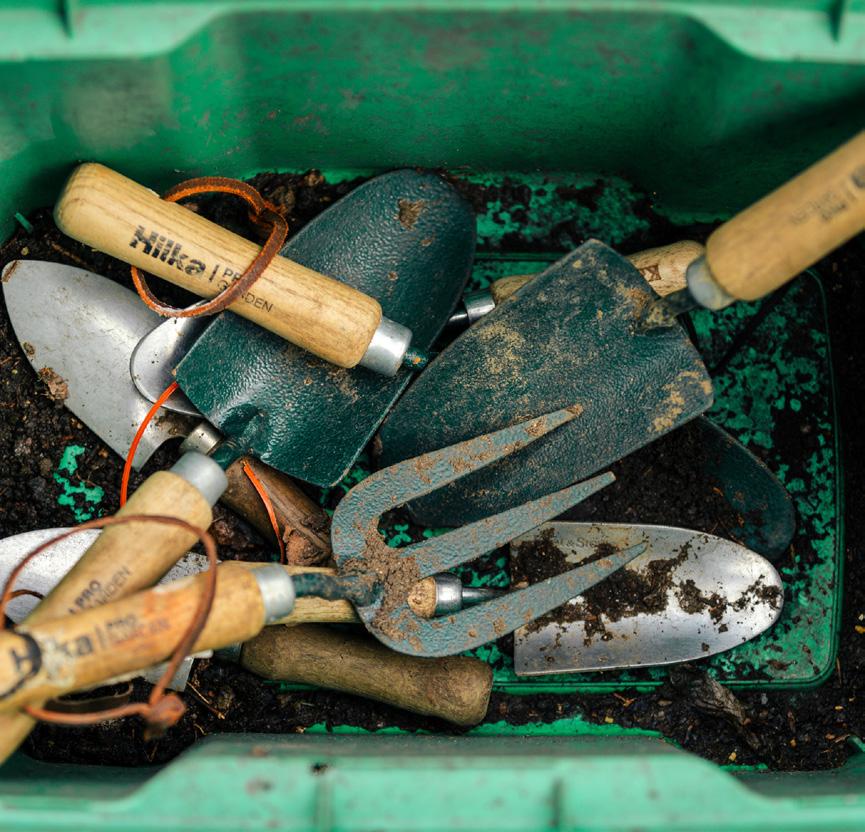
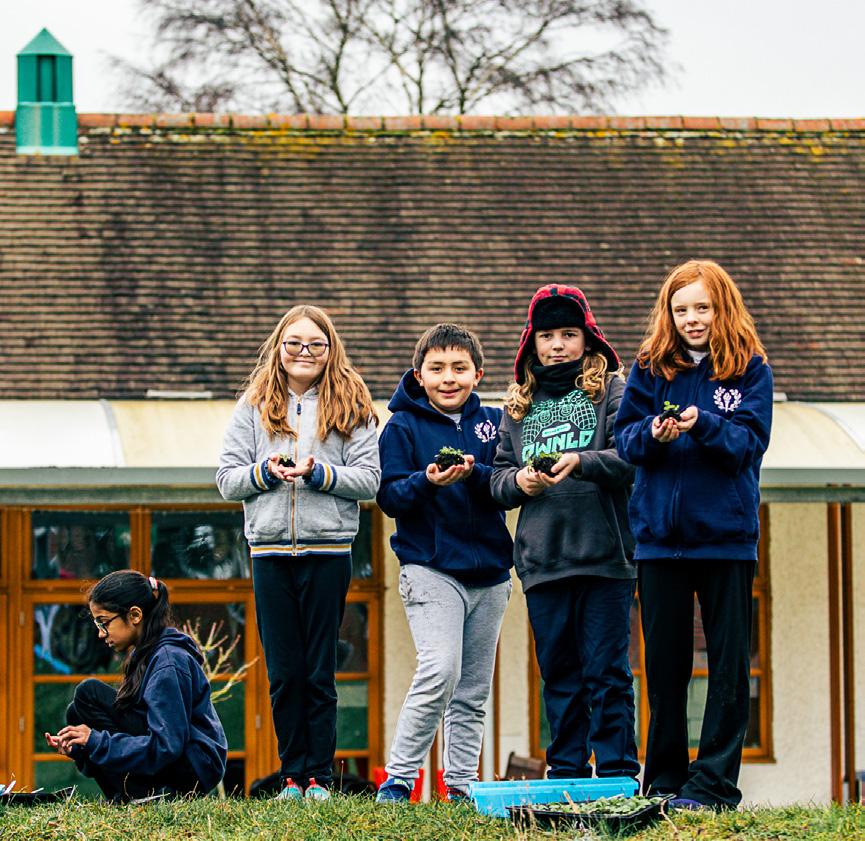
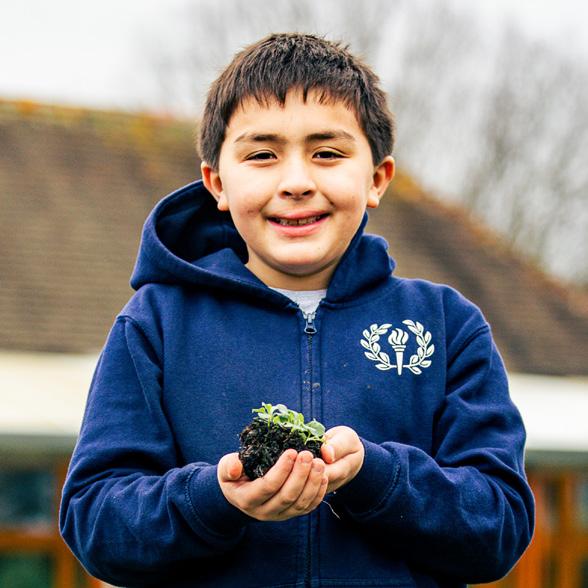
At St Chris, we recognise that every child begins their educational journey from their own starting point. Our focus is on deep, meaningful learning and engagement, not just academic results. We teach to the top of the class, setting ambitious goals for all students, and provide the support and challenge they need to reach their potential. Each child is encouraged to grow academically, socially, and personally, building confidence and developing their strengths.
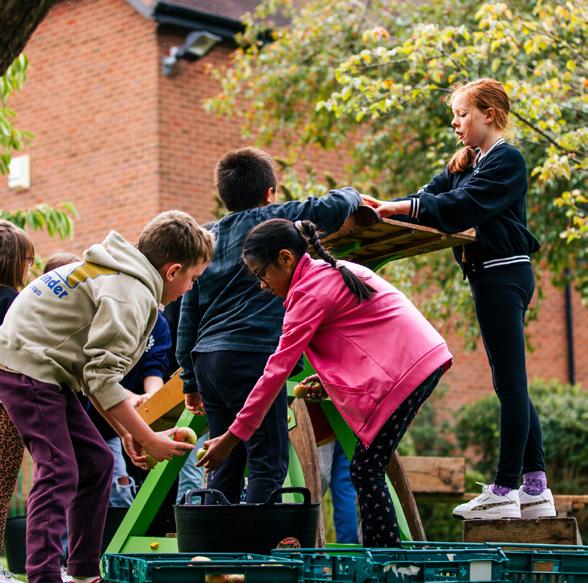
Progress is monitored continuously through informal observations and an assessment sheet for each child. Teachers annotate skills as they are demonstrated, building a clear picture of each child’s development, highlighting strengths and areas to support. Half-termly meetings with the Junior School Head ensure tailored actions for stretch or additional scaffolding. Small class sizes and support from Teaching Assistants allow targeted group work when needed. While we follow the national curriculum, we have the flexibility to focus on areas that benefit each child’s learning. Academic reports are sent home twice a year, alongside termly parent consultations.
We use STEER Tracking (Years 3–12) to monitor and support students’ mental health and wellbeing. This evidence-based tool helps children develop self-regulation and identifies hidden social-emotional risks, allowing early intervention and personalised support.
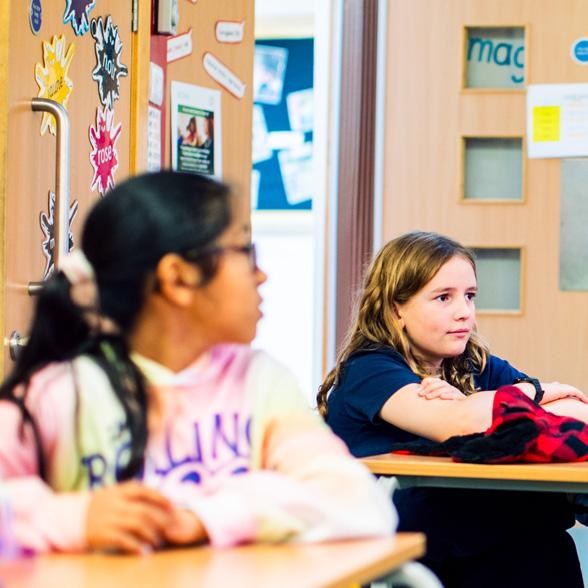
In the Junior School, homework is designed to be meaningful, manageable, and linked to the term’s topic. Children receive a list of age-appropriate enrichment activities and typically choose three or four to complete. Activities may be creative, practical, or researchbased, and encourage family involvement. Standard weekly tasks include reading, spelling, and numeracy, with TimesTables Rockstars used across year groups. Deadlines are set for the end of each term, and teachers are available for support if needed.
We value student voice and leadership at every stage.
The School Council includes around ten students from Reception to Year 6, supported by the Pastoral Lead. It is nonhierarchical, giving all voices an opportunity to be heard.